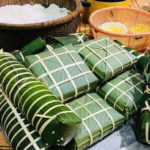Making your own bean sprouts at home ensures food safety, so many people opt to make their own instead of buying them at the market. Have you tried making bean sprouts with lime water, a method that is not only safe but also yields a quick harvest? Let’s explore this method with Bach Hoa XANH.
1 Tools and Ingredients for Making Bean Sprouts with Lime Water
- Lime water
- An 80-liter plastic container with a tap
- Banana leaves, bamboo leaves
- Bamboo trays
- Bricks
Note: When buying green beans, choose unhulled beans, and use less lime to prevent the water from turning cloudy white.
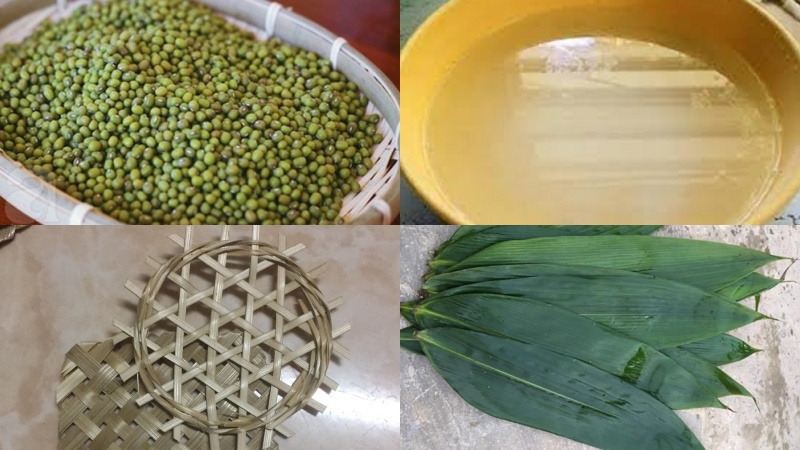 Ingredients for making bean sprouts at home
Ingredients for making bean sprouts at home
2 How to Make Bean Sprouts with Lime Water
Step 1 Prepare the Beans and Lime Water for Soaking
Select flat beans by placing them in a bowl of water and skimming off the ones that float. Then, rinse the beans and drain them in a colander.
Soak the rinsed beans in lime water for about 4-5 hours, depending on the quality of the beans.
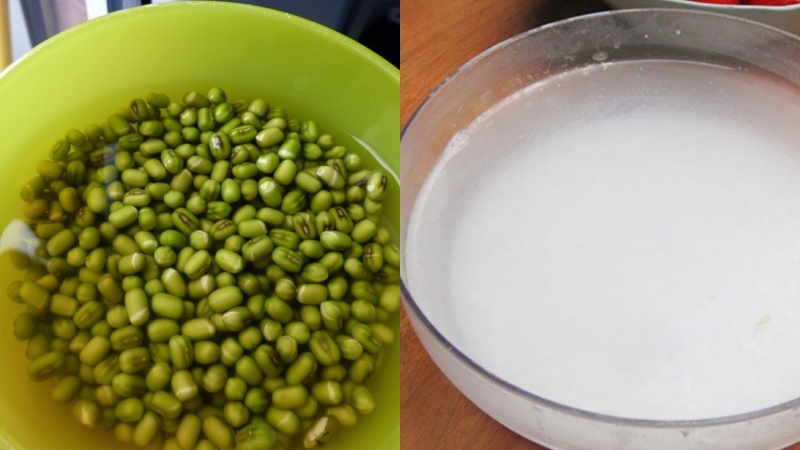 Preparing the ingredients
Preparing the ingredients
Step 2 Sprout the Beans Using Bamboo Leaves and a Plastic Container
Arrange bricks in a fan shape at the bottom of the container to facilitate water drainage when watering the sprouts. Then, place the bamboo trays inside, lining them with bamboo and banana leaves. Spread the beans evenly on the surface of the leaves.
Add another layer of banana leaves on top and continue spreading the beans. Repeat this process until all the beans are used. Finally, cover the container to block out light and place two bricks on top.
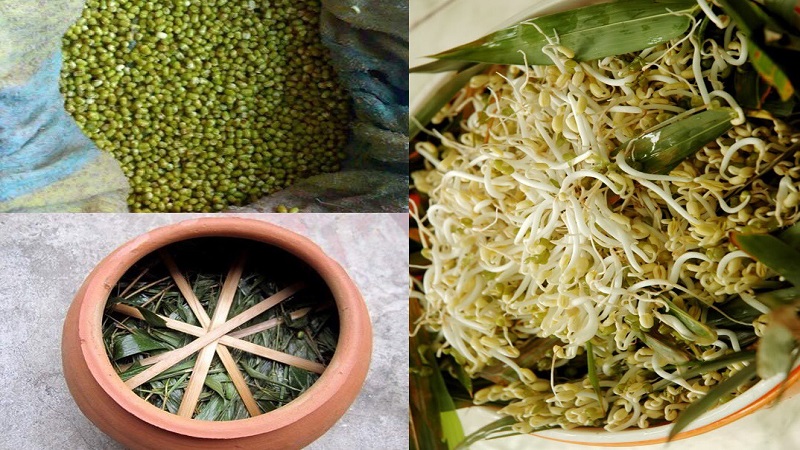 The sprouting process
The sprouting process
3 Caring for the Sprouts During the Sprouting Process
During the first two days, soak the sprouts in water once a day for about 10 minutes. At the same time, water them 4-5 times a day.
On the third and fourth days, soak the sprouts three times a day for about 10 minutes each time. Water them regularly, about 5 times a day.
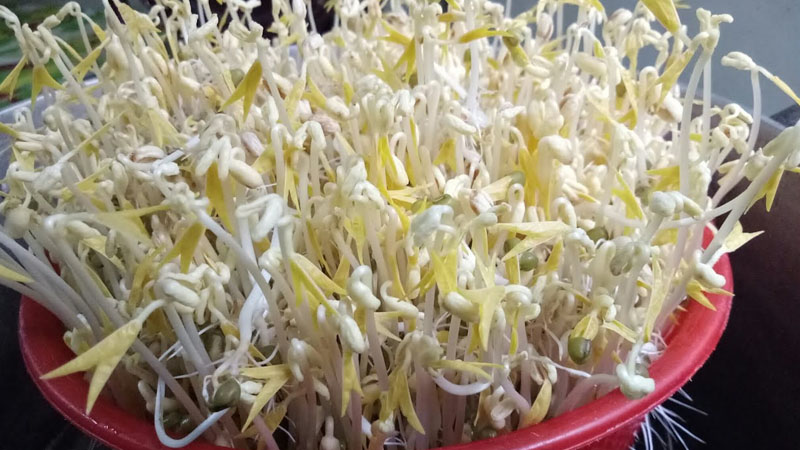 Watering the sprouts daily
Watering the sprouts daily
After four days, you can harvest the sprouts by removing each layer and placing them in a clean basin. Use a sieve to rinse and separate the sprouts, discarding the bean shells and any beans that didn’t sprout.
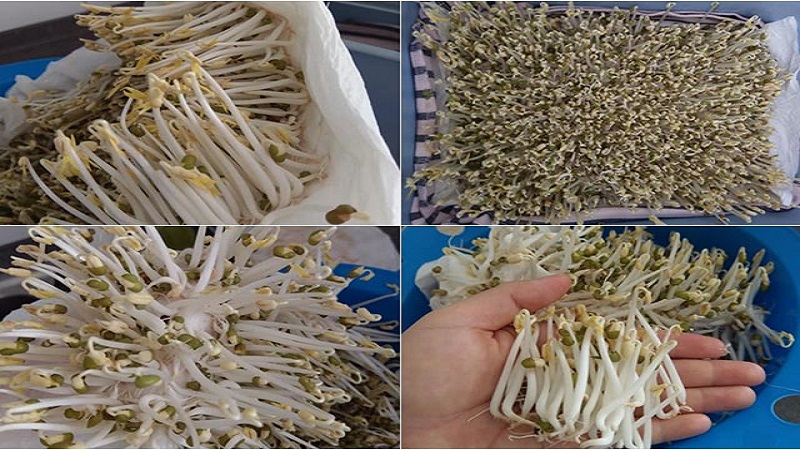 Harvesting the sprouts
Harvesting the sprouts
These homemade sprouts can be used to cook various delicious and nutritious dishes for your family, such as stir-fried bean sprouts with beef, blood cubes, or mixed with raw vegetables.
8 Common Mistakes People Make with Cutting Boards
Are you using your cutting board correctly? Many Vietnamese households rely on cutting boards in their kitchen, but not everyone knows how to use them properly, especially when it comes to wooden cutting boards. Check out these 8 mistakes to avoid when using a cutting board to ensure both hygiene and safety for everyone in your family.
Is Refrigerated Leftovers Linked to an Increased Risk of Cancer?
Dr. Lam Van Man, Head of Research, Development and Technology Transfer Department of the Institute of Safety Food, has warned of the risk of food poisoning when reheating leftovers from the refrigerator. But what should we be aware of when it comes to the possibility of these leftovers causing cancer? Here, we explore what the experts have to say on the matter and offer some tips for safe eating.
Preserving Leftover Food from the Tet Holiday
With the beginning of the Lunar New Year, many households are stocking up on food to celebrate the festive occasion. While keeping food in the refrigerator is convenient, it can also be harmful to users if not done correctly. We have compiled a few tips to help ensure food remains fresh and safe to consume during Tet.



























